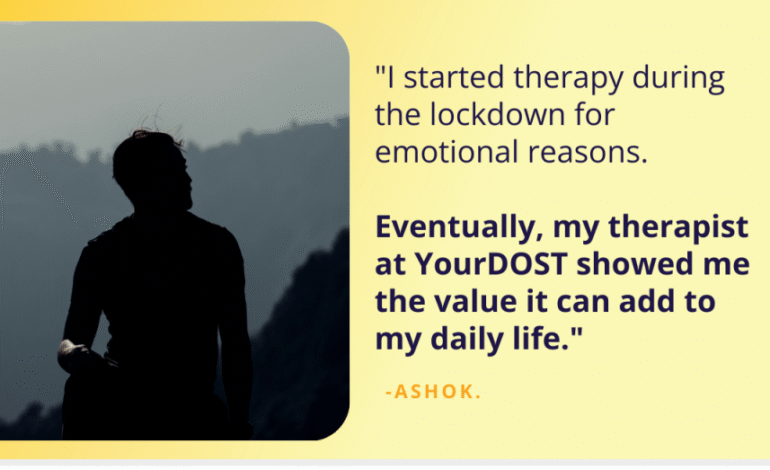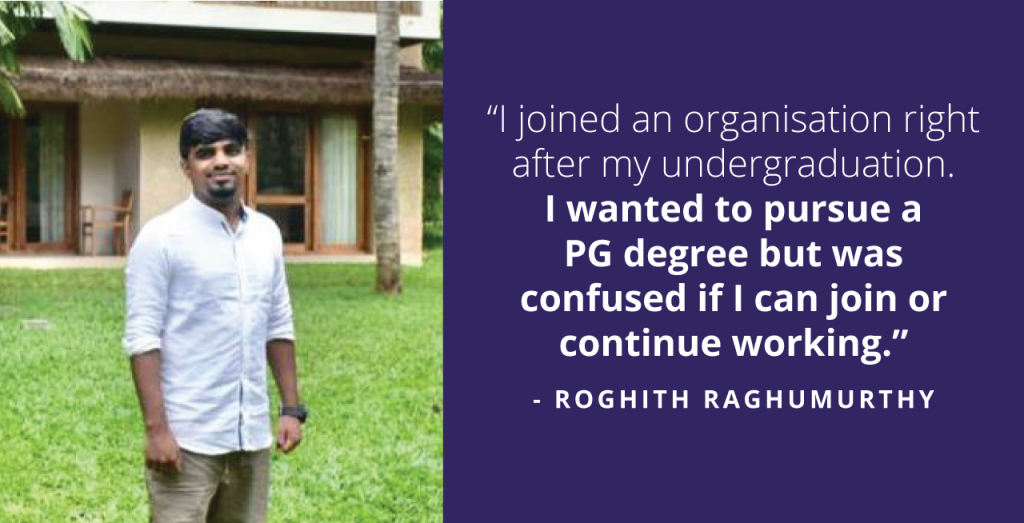Meeting Deadlines, Beating Stress – A Paradox?
Puneet Manuja, Co-founder of YourDOST asked me to write an article for them and the topic he gave me was, “Meeting Deadlines, Beating Stress – Can the two be achieved simultaneously”. Quite frankly I was both stumped and impressed by his question.
I was stumped because he seemed in one way to be almost asking for the impossible. Impressed, because it is only through asking for the the seemingly impossible that we make progress and forge through previously uncharted territories. I did not have a readymade solution to give him but I promised him I would ponder about it.
For the last three days, I have stayed with the churning of thoughts in my head related to his question. I personally resonated with his question at a very deep level. Managing stress effectively is something that is very important for me at a personal level and it is also a topic I research as well as teach about. At the same time ‘deadlines’ are also a very prominent reality in my own life given my work as an academic in a business school (IIM Bangalore) and my commitments as a mother of a 9 year old boy. I also realized that Puneet’s question was indeed a ‘question of our times’, given his experience at YourDOST, where every day they have to deal with young students and professionals who are struggling with stress and deadlines. This was not a question I was willing to give up on.
For the first few days, the only solution I could come up with were – effective time management and effective energy management
Both of these are topics that have been widely researched and there are indeed some very effective tools that can be used to help us manage our stress better. Simple practices like listing all your pending tasks and prioritizing them before starting out to work and being open to delegating smaller tasks can make a huge difference. Taking time out every night to plan the ‘big’ tasks to get to first the next day before you get distracted by a new swarm of emails and other distractions is another very effective habit. In fact, sometimes very simplicity of these habits camouflages the effectiveness of them.
In my view, time management should also be supplemented with effective energy management rituals. While time is a limited resource, energy is both unlimited as well as renewable. I am a huge believer of paying attention to the quality of my own energy as I go about various tasks during the day, and when I notice a dip, I make sure I do something to spruce up my energy again.
There are four main types of energies we typically use in our daily life: physical, mental, emotional, and spiritual, and we can choose to work on one or all four of these types of energies
There are simple effective ways to manage your energy and it need not be a time-consuming activity or something that takes you away from your work or other activities. You can read more about some easy energy management practices and how to use them in a corporate setting here (HBR: Manage Your Energy, Not Your Time).
Even as effective time and energy management seemed like the two obvious answers to Puneet’s question, I felt like there was something else that I was missing. So I decided not to get back to him yet and I waited with the question. Is it indeed possible to operate in a world where we need to work with deadlines and yet not get worn down by stress?
The point that was bothering me most about deadlines was that the minute we create a deadline (or are given a deadline by someone else important to us), we automatically put ourselves onto a path where the creation of stress is inevitable. This is because the creation of a deadline implicitly creates a goal in our head which has both an approach component and an avoidance component.
While the approach component of the goal will motivate us towards the target, the avoidance component of the goal (which in this case leads to a fear or anxiety of what will happen if I don’t meet the deadline), will automatically put us into a ‘stressed’ mode. So ‘deadlines’ almost seem wired up to create stress and yet most of us live and work in a world that is fraught with deadlines (self created and other imposed).
So what is the way out here?
The answer I was looking for came to me this morning when I was sitting and watching my son and his friends during their tennis coaching. Their coach was drilling them, giving them task after task, pushing them to do better and move faster. There were goals and time limits being set for them, there was a pressure to meet those goals, and yet the kids only seemed to be having fun. There was a stress response that was being created in their body as they rose up to meet the demands of the time bound activities given to them. However, this stress was not consuming them emotionally. What was the magical ingredient here?
Stress is essentially just a physiological response that activates certain systems in our bodies and brains, and de-activates certain other systems. You can see a detailed explanation of these systems and why this happens here (Video: Online Module on Managing Stress).
The important point to note is that our bodies and brains are totally capable of handling stress as long as it is in a certain range and limit. What whacks the life and health out of us is prolonged and continuous experience of stress and anxiety
So what was it about the ‘stress’ experience of these kids on the tennis court, that made it feel more like a joyful celebration of muscles and brains being put to use than like a monster that sucks life out of us? What did these children instinctively know about managing stress and deadlines, and pressures that we don’t seem to know? What magical and esoteric method of self and task management were these children practicing? Or were they were just being playful?
Could playfulness indeed be the answer that we are looking for as we search for a way to simultaneously work with deadlines and also manage stress? How might playfulness alter the way in which you see your targets and goals and the anxiety you hold about not meeting deadlines? Did playfulness on a sports field ever keep you away from putting in your best effort or pursuing your goals? Then what stops you from bringing the same playfulness into your workplace?
There is an activity that I often do in my classes and workshops. I ask the participants to list all the similarities that they can think of between work and sports. Most people come up with a pretty long list for this question. Then I ask them to list all the differences that they can think of between sports and work. This list is usually smaller and by this stage, many participants start getting quizzical looks on their faces. I like to see these expressions. To me it signifies that their brains have gotten to work into examining the boundaries and boxes we have categorized work and play into. At this stage, I give them a third task I divide them into small groups and ask them to put on an ‘inquiry’ hat and examine each item on their collective ‘differences list’. In hypothesis testing, we go with an understanding that even if we can find one counter example to a theory then the theory is said to be ‘falsified’. I ask my students to take this approach with their ‘differences list’. Even if they can find one example where a particular difference does not hold, then that is not a necessary difference between work and play. Each time I run this activity, I find that all the differences that have been listed between work and play eventually disappear.
What this shows is that the differences between work and play are only in our minds. There is nothing that stops you from re-drawing the mental boxes in your mind so that you walk into your workplace every morning with the same attitude that you would walk into a sports field.
There is nothing that stops you from taking your victories and failures with the same sportsmanship that you would on a playfield. There is nothing that stops you from carrying your ‘work burdens’ and ‘deadlines’ in a light and sporty way.
The benefits of playfulness come from the fact that when we are playful we are automatically less invested in specific outcomes. This does not mean that we will not have goals and targets. It just means that we are usually more interested in having fun in the activity than in the necessary reaching of the target. We value the activity and want to do it because it gives us enjoyment and excitement. If we get a ‘win’ or a ‘success’ at the end of it, how nice, and if we don’t, well we had fun anyway! How playfulness alters the effects of goals on our psyche is that it enhances the approach components of the goal (by introducing sub-agendas like fun and enjoyment) and drastically reduces the avoidance component of the goal by eliminating the anxiety associated with not reaching it.
When we are playful, we are also more resilient and we don’t take failures or setbacks personally. We are naturally wired to view ups and downs as components of any game and so the downs of a game are more easily attributed as being a part of the game rather than as something wrong about us. The pains and rewards along the way become inseparable from the fun of learning, growing, and improving. Ever watched a child learn to walk?
So if playfulness is the door that life is holding open for you would you be willing to walk through it? Would you be willing to choose sportiness as the attire you wear to work each day? If you have already been a child at some point in your life, I guarantee you that you have already pilot tested this mode of being and doing!
Do you find it hard to manage stress at work, with a load of deadlines? It’s normal! Seek advice by talking to our experts at YourDOST on how to manage stress effectively.






